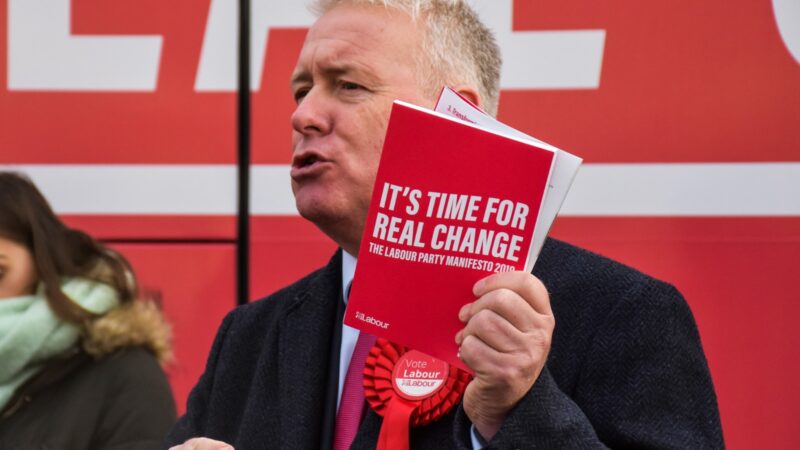
On December 13th, following a tumultuous general election campaign, our worst fears were realised and communities that had been loyal to Labour for generations had fallen to the Tories. It gave us no pleasure whatsoever that a report we had worked on since the summer of that year was prescient in its accuracy as working-class communities woke up to see their new Tory representatives crowing. In the months following our defeat, we published our document Northern Discomfort – not to show that we were right, but to build for the future and to win once again. Because, let us be clear, we want Labour to win. Our country and our communities desperately need Labour to win.
As representatives of areas with proud industrial histories, and having seen government policies rip out their economic hearts, we have seen first hand the sense of desperation for something different. It has come as no surprise that these communities turned their back on the status quo. ‘No Holding Back’ was born and we began a digital tour of the country seeking to talk with, and most importantly listen to, as many people as possible. We spoke with more than 2,000 people at 30 events. Members of the party, the public and trade unions came to tell us what they thought.
We believe the answers to Labour’s problems, and indeed the country’s, lie with the people who make up our movement. It is their life experience and their voices that give our party its lifeblood, and it is their words that make up the body of our report. They certainly did not hold back. Labour’s problems in working-class heartlands did not start and end with the referendum on EU membership, but it is clear that the party’s handling of the issue poured fuel onto a fire already raging. Brexit came up at every meeting. For party members and trade unionists knocking doors day in and day out, it was the issue that provoked most anger in the electorate.
But it was not the only issue that people brought up. Many mentioned the anger from residents about local Labour councils and their management of Tory cuts. Others that Labour had lost touch with ordinary working people – indeed almost four in five of those we polled thought that Labour members were privileged and did not understand the day-to-day lives of those they represented. Others mentioned the anger on the doors at the leadership, though this position was often bound together with the issue of Brexit. They did not do so however without the stark observation that an element of people within our own party purposely sought to undermine a Labour victory for factional reasons.
These factors all combined to undermine the trust the electorate had in Labour. Whilst it is clear that our policies were – and remain – popular, the electorate simply did not believe us when we said we would deliver them. Trust is not something easily won and when it has been lost regaining it is extremely difficult. To start that healing process, it is critical that when we get things wrong we acknowledge it and apologise. By failing to do so, we do a disservice to those we aspire to represent.
Labour got it wrong on a second referendum. Those who voted to Leave were treated with appalling contempt and those who voted to Remain were strung along for factional reasons. That a party that describes itself as democratic on its membership cards found itself in opposition to the democratic process is something we should solemnly reflect on. To begin the job of rebuilding the trust that has been lost and to restore people’s trust in politics and politicians, Labour should say sorry. But we should not stop there. The challenges ahead of us as a country are monumental, and a return to timidity is not the answer.
The road to an electoral majority runs through those held-back communities that have been moving away from us for a generation. The Brexit vote showed their appetite for something different to a status quo that has failed them. We need to be bold in our solutions to the scale of the problems we face. The communities that gave birth to the Labour Party can never again be taken for granted. The loss of trade union power and the bureaucratisation of the party has lead to a divergence between the community and those elected to represent them and a dearth of working-class leaders in parliament.
We need to get back into working-class communities and organise from the grassroots up. Labour must be steeped in these communities, offering and finding solutions, if we are to gain trust. We need to develop local leaders so that the extraordinarily talented people from these communities who do not have the benefit of knowing the right people in the party bureaucracy can reach elected office and ensure their voices are heard. Together we can heal our party and heal a badly divided Britain. As the country buckles under the Covid pandemic, it is more important than ever that we give voice to the communities who feel every economic hit most vividly.
The launch of ‘No Holding Back’ will be streamed on Facebook from 7.30pm on November 12th.




More from LabourList
‘Factionalism at the top is weakening Labour – and handing a gift to Reform’
‘Europe must stand strong on its own as US security guarantees grow conditional’
‘Tackling poverty should be the legacy of Keir Starmer’s government’